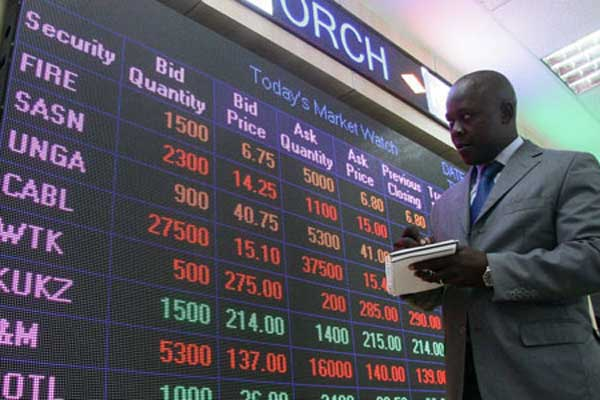CAPITAL MARKET

₦2.8TR GONE: ANALYSTS BLAME TRUMP’S REMARKS FOR NAIRA AND MARKET CRASH
Financial analysts and economists have linked the recent decline in the Nigerian stock market and the naira’s depreciation to United States President Donald Trump’s recent remarks, in which he designated Nigeria as a “Country of Particular Concern” and threatened possible military action.
Over the past ten days, Nigeria’s financial markets have witnessed significant turbulence, with the Nigerian Exchange Limited (NGX) and the naira both suffering major losses. The NGX extended its bearish trend on Monday, following a N2.8 trillion drop recorded the previous week. Meanwhile, the naira weakened further across official and parallel markets, closing at N1,437.29 per dollar.
Experts believe the downturn stems from shaken investor confidence triggered by Trump’s comments.
Dr. Muda Yusuf, Chief Executive Officer of the Centre for the Promotion of Private Enterprise, had earlier warned that such statements could undermine investor confidence in Nigeria.
Former President of the Chartered Institute of Bankers of Nigeria (CIBN), Mazi Okechukwu Unegbu, and economist Professor Godwin Oyedokun, both explained that Trump’s threat had sent shockwaves through Nigeria’s economy.
Unegbu said the economic reaction was expected, noting that Trump’s comments created uncertainty among investors and prompted many to suspend their investment plans on the NGX. He acknowledged that while the remarks had ripple effects across various sectors, he doubted the U.S. president would follow through with any direct action against Nigeria.
Despite the market slump, Unegbu described the period as an opportunity for strategic investors. He added that the previous gains in the foreign exchange market were unsustainable and emphasized the need to boost local production to stabilise the naira.
He further explained that the decision to float the foreign exchange market would yield positive results only if Nigeria reduces its dependence on imports. Strengthening security, he said, would also help revive agricultural productivity and restore investor confidence.
“When Trump made the statement, fear spread across the market, which affected investor confidence. Many have paused their investment plans on the NGX.
“However, this is also a good time to invest strategically. The earlier forex gains were artificial — Nigeria must produce what it consumes for real stability.
“The FX float will make sense only when we reduce import dependence. Trump’s statement indeed impacted every aspect of the economy, though I doubt he’ll take any real action,” Unegbu said.
On his part, Prof. Oyedokun said the recent sharp depreciation of the naira and the N2.8 trillion loss in the equities market reflected growing investor anxiety following Nigeria’s CPC designation by the U.S.
He noted that the development not only threatens Nigeria’s global reputation but also raises fears of possible sanctions, capital flight, and increased geopolitical risk.
Oyedokun explained that foreign investors often react swiftly to diplomatic signals suggesting strained relations with major powers. The CPC designation, he added, is typically linked to governance, security, or human rights issues—areas that make markets especially sensitive.
He cautioned Nigerians against panic-driven actions such as speculative forex trading or hasty withdrawal of investments, warning that such moves could worsen volatility in both the currency and capital markets.
“This situation understandably raises concerns for Nigeria’s economic stability and global image,” he said.
“The steep fall of the naira and the over N2.8 trillion equities loss clearly show shaken investor confidence and heightened geopolitical risk.“Events like this remind us that international diplomacy and domestic economic resilience are closely connected. Markets react to signals suggesting possible sanctions or trade restrictions.
“What Nigeria needs now is calm, transparency, and strategic engagement—not panic. Investor confidence, not just capital, drives the market.”
Oyedokun urged the government to respond decisively by:
Engaging diplomatically and transparently with the U.S. to address the concerns behind the CPC designation.
Stabilising the economy through coordinated monetary and fiscal policies to manage liquidity and reassure investors.
Addressing root causes by strengthening governance, human rights protection, and the rule of law.
Enhancing domestic resilience through industrial diversification, regional trade, and higher local productivity.
He concluded that while the short-term economic shock is severe, it presents an opportunity for Nigeria to improve its governance and international relations. A transparent, reform-oriented approach, he said, could help restore investor confidence and reposition Nigeria more positively on the global stage.
"This represents a significant development in our ongoing coverage of current events."— Editorial Board









